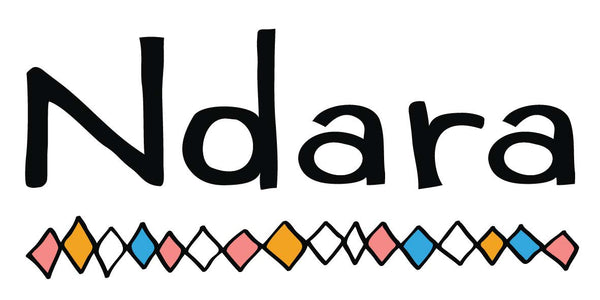
How to survive and thrive through different seasons.
We are in the middle of June; full-on rainy season in tropical Bangui. Rainy season near the equator means heavy rains falling from dark skies for several hours a day.
The Oubangui river, which is also the border between the Central African Republic and Congo, swells as the water rises, swallowing sand banks, rocks, and sometimes even parts of the road that has been built too close to the river. The red soil is turned into slippery red mud that gets splattered on everything and as the humidity in the air increases so does the mold on everything you own: the walls of your house, the clothes in your closet and the towel you use to dry yourself. Plants grow overnight, bushes that seemed like they were dying during the dry season just a month or two ago are not in full bloom.. Fruit such as mango and avocado hang heavy and ripe from bulging trees.

Rainy season changes the logistics of Ndara’s supply chain. The Central African Republic is a landlocked country and any exportation and importation is either done by road (in the dry season) or river (in the rainy season). Rainy season destroys the dirt roads across the country and turns them into bottomless red mud slides that engulf entire trucks.
It also opens up river transport. The high water levels usually allow for cheaper and safer (rebels don’t attack boats like they do trucks on the road) importation of essential goods by barge*.
This rainy season however, is different from any other. River traffic is light. Barges are few and far between. They are arriving in Bangui only partially full, of the essential imports Central African’s depend on such as flour, sugar, livestock and fuel.

The effects of more than 100 days of war in Ukraine have now reached the Central African Republic.
Fuel shortages in particular are crippling the Central African Republic’s already weak economy, and it is now rationed. The wait for your ration at the gas station can be as long as 20 hours. Limited fuel affects the price and availability of all goods.
We worry not only about sourcing raw materials and shipping our products, but also about our artisans and their families going hungry.
Most products, like the locally made foam that we buy to stuff our animals and cushions with, are now almost impossible to find on the market. The price of foam has increased and so has the price of elastics and fabric. Shipping products out of Bangui has become extremely hard and very expensive as airlines cancel flights to Bangui due to the lack of fuel. Fuel shortages have grounded many of our customers at home, as they dont have fuel for their cars, preventing them from coming to our Boutique.
The Central African Republic’s neighbor, and major trade partner, Cameroon, has banned all export of wheat products and palm oil to the Central African Republic to try to curb rising prices. In Bangui, the price of flour has gone up 40%. Artisan’s salaries are stretched, as they try to feed the 10, 15 or 20 people they have at home.
If anything, Central Africans are used to changing seasons. Seasons of heavy violence follow seasons of peace and calm. Seasons of good harvests follow seasons of no harvest at all.

Somehow they find ways to not only survive, but also thrive.
So, we adapt. We have moved our pedal-powered sewing machines out into the sunlight because there is no fuel to run the generators to power the lights in the workshop.
Thankfully, we have an old stock of foam, but once we use that up we’ll have to find a creative replacement - or simply produce a new product with what we have on hand.
As any creative retail business we juggle these challenges with planning for the next season: Christmas. While we can dream of new products to launch at Christmas, we fear this war is not going to be over soon.
We have no idea what challenges (or opportunities?) we’ll have in 2 months, much less in 5 months. But, when we decided to create and operate Ndara in the Central African Republic we also accepted the reality of constantly living with uncertainty.
We will continue to adapt and thrive in adversity, and we stand in solidarity with the people of Ukraine and anywhere in the world where violence is raving havoc, as they show resilience in the face of the toughest adversity.
*a flat-bottomed boat for carrying freight, typically on canals and rivers, either under its own power or towed by another
